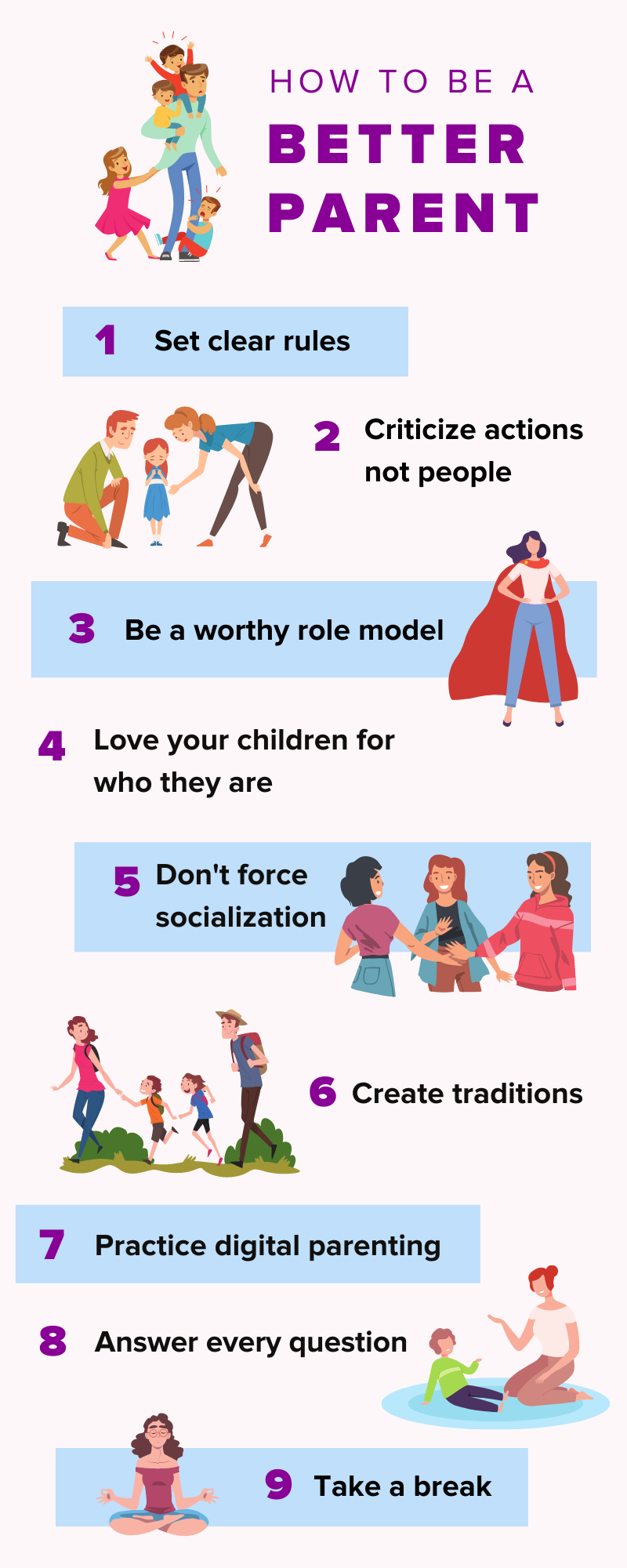Raising a happy and harmonious family is every parent’s ultimate goal. However, with the numerous challenges that come with modern parenting, it can be overwhelming to know where to start. Effective parenting is the key to unlocking family happiness, and in this article, we will explore the strategies that can help you achieve this goal.

What is Effective Parenting?
Effective parenting is an approach that focuses on raising children who are emotionally intelligent, responsible, and resilient. It involves creating a nurturing environment that encourages open communication, mutual respect, and trust between parents and children. Effective parents are those who are able to balance discipline with empathy, providing their children with the guidance and support they need to thrive.
Characteristics of Effective Parents
Effective parents share certain characteristics that contribute to their success. These include:
- Emotional Intelligence: Effective parents are able to recognize and manage their own emotions, as well as those of their children.
- Empathy: They are able to put themselves in their child’s shoes and understand their perspective.
- Consistency: Effective parents establish clear rules and consequences, and consistently enforce them.
- Positive Communication: They use positive language and active listening skills to communicate with their children.
- Flexibility: Effective parents are able to adapt to changing circumstances and adjust their parenting style accordingly.
Strategies for Effective Parenting
Fortunately, effective parenting is a skill that can be learned and developed over time. Here are some strategies that can help you become a more effective parent:
- Practice Active Listening: Pay attention to what your child is saying, both verbally and non-verbally. This will help you understand their needs and concerns, and respond in a way that shows you care.
- Set Clear Boundaries: Establish clear rules and consequences, and make sure your child understands them. This will help them feel safe and secure, and prevent behavioral problems.
- Use Positive Reinforcement: Reward good behavior with praise, attention, and other positive reinforcements. This will encourage your child to repeat the behavior, and develop a sense of self-worth.
- Be a Positive Role Model: Children learn by imitation, so make sure you are modeling the behavior you want to see in your child. This includes values such as honesty, kindness, and respect.
- Spend Quality Time with Your Child: Spend regular one-on-one time with your child, doing activities that they enjoy. This will help strengthen your bond and create lasting memories.
Overcoming Common Parenting Challenges
Despite our best efforts, parenting can be challenging at times. Here are some common parenting challenges, and strategies for overcoming them:
- Tantrums: Stay calm, and avoid giving in to your child’s demands. Instead, offer empathy and help them find a way to manage their emotions.
- Sibling Rivalry: Encourage empathy and kindness between siblings, and avoid taking sides. Teach them how to resolve conflicts in a peaceful and respectful manner.
- Bedtime Struggles: Establish a consistent bedtime routine, and make sure your child is getting enough sleep. Avoid using screens before bedtime, and create a relaxing bedtime environment.
The Importance of Family Bonding
Family bonding is essential for creating a happy and harmonious family. Here are some ways to strengthen your family bond:
- Regular Family Time: Set aside regular time for family activities, such as game nights, movie nights, or outdoor activities.
- Share Meals Together: Sharing meals together can help create a sense of togetherness and strengthen family bonds.
- Show Physical Affection: Physical touch is essential for creating a sense of connection and attachment. Show your child physical affection such as hugs, kisses, and cuddles.
- Create Family Traditions: Create special family traditions that your child can look forward to, such as annual vacations, holiday celebrations, or weekly family activities.
FAQs
Q: What is the most important quality of an effective parent?
A: Emotional intelligence is the most important quality of an effective parent. It enables parents to recognize and manage their own emotions, as well as those of their child.
Q: How can I teach my child emotional intelligence?
A: You can teach your child emotional intelligence by modeling emotional awareness, validating their emotions, and teaching them emotional regulation skills.
Q: What is the best way to discipline my child?
A: The best way to discipline your child is to use positive discipline techniques such as redirection, positive reinforcement, and natural consequences.
Q: How can I balance parenting with work and other responsibilities?
A: You can balance parenting with work and other responsibilities by prioritizing your time, setting clear boundaries, and seeking support from family and friends.
Conclusion
Effective parenting is a journey that requires patience, understanding, and a willingness to learn and grow. By incorporating the strategies outlined in this article, you can create a happy and harmonious family environment that nurtures emotional intelligence, responsibility, and resilience in your child. Remember, effective parenting is not about being perfect – it’s about being present, consistent, and supportive. With time, effort, and practice, you can become the effective parent your child needs to thrive.
Closure
Thus, we hope this article has provided valuable insights into The Secret to Family Happiness: Effective Parenting Strategies. We hope you find this article informative and beneficial. See you in our next article!